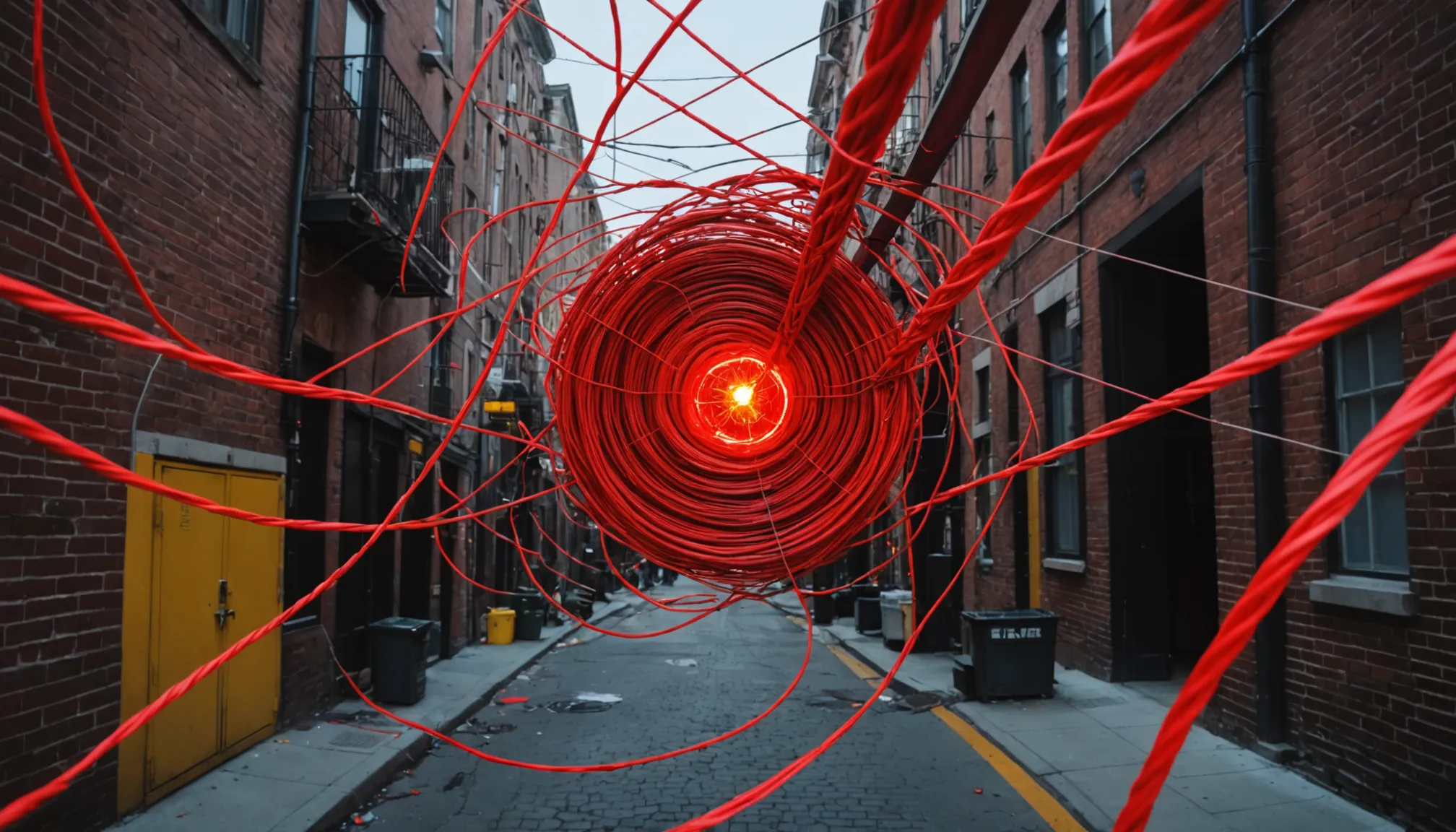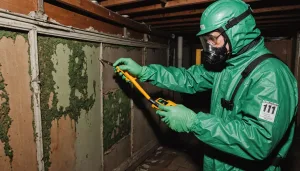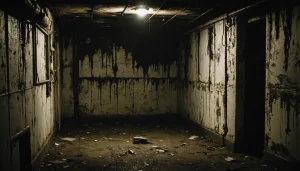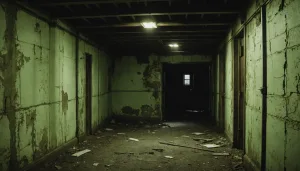When it comes to home safety, electrical work is one of the most critical areas where caution should be paramount. Unfortunately, misconceptions surrounding electrical safety often lead to increased risk, especially in the realm of do-it-yourself (DIY) projects. Many homeowners believe that tackling electrical issues can be as straightforward as painting or basic carpentry, but this assumption can be dangerously misleading.
One of the most prevalent misconceptions is that small electrical tasks, such as replacing outlets or switches, are simple and safe to perform without professional help. However, even these seemingly minor projects come with significant DIY risks. Electrical work involves an intricate network of wires and systems, where a slight mistake can not only lead to malfunction but also pose serious fire hazards.
Another common fallacy is the idea that modern safety devices, like circuit breakers, can fully mitigate the risks associated with amateur electrical work. While these devices are indeed designed to improve electrical safety by shutting off power during overloads or short circuits, they are not a substitute for competent wiring. They cannot correct faulty installations or prevent all types of electrical failures, which can result in catastrophic consequences.
- Myth: “If the power is off, there’s no risk.”
- Reality: While switching off power reduces immediate danger, it does not eliminate the risk of incorrect installations or the possibility of turning on electricity to an improperly wired system.
- Myth: “Low-voltage systems are always safe to manage.”
- Reality: Even low-voltage wiring can pose risks if not handled correctly, as faults can cause fire or damage sensitive equipment.
The home safety measures people believe protect them often don’t account for the full spectrum of electrical complexities. For example, understanding the capacity and load of a particular circuit is fundamental to prevent overloading. Unfortunately, DIY enthusiasts often overlook these technical details.
| Misconception | Reality |
| Only professionals encounter real electrical hazards. | Hazards like electric shock and fires can affect anyone, regardless of the project’s perceived complexity. |
| All wires in the home carry the same voltage. | Different circuits have different voltage levels; misidentifying them can lead to serious injury or equipment damage. |
Recognizing and dispelling these myths is crucial for anyone considering tackling electrical tasks on their own. In reality, the scope and nuances of electrical safety far exceed common expectations, underscoring the need for trained professionals. As such, before undertaking any DIY electrical work, homeowners should pause to consider whether the potential risks and the false sense of security are worth the gamble. With safety as the primary concern, turning to a qualified electrician ensures that your home’s electrical system is not only up to code but ultimately safe for you and your family.
Risks associated with amateur installations
Attempting to tackle electrical work without professional expertise can lead to a multitude of risks that may not be immediately apparent to the amateur handyman. DIY enthusiasts often underestimate the complexity of electrical systems, potentially setting the stage for hazardous consequences.
1. Electrical Hazards:
– Electric Shock: The risk of electric shock is not to be underestimated. Many may think turning off the power at the breaker ensures complete safety. However, without the proper knowledge of how electricity flows through a home, one can easily stumble into live circuits, leading to severe injuries or even fatal accidents.
– Fire Danger: Improper installations or faulty repairs can result in overheating wires, which may cause insulation to melt and eventually ignite surrounding materials. This can lead to electrical fires, which are often more devastating because they tend to smolder within walls before being detected.
2. Improper Wiring and Installations:
– Overloading Circuits: Without understanding the load capacity of circuits, one can inadvertently overload them by adding more devices than the system is designed to handle. This overloading can lead to frequent tripping of breakers, damage to appliances, or worse, a fire.
– Incorrect Wire Gauges: Using the wrong thickness (gauge) of wire for a specific application poses significant risks. If the wire is too thin to handle the load, it can heat up excessively, leading to potential ignition points and electrical safety hazards.
3. Hidden Costs:
– Inadvertent Damage: Amateur work may cause damage, such as cutting into power cables while attempting to install new fixtures. Such mistakes can be costly to repair and, if not addressed correctly, can compromise home safety.
– Unseen Failures: DIY risks include creating issues that may not manifest immediately. Poor connections and inadequate insulation might not seem problematic at first but can degrade over time, causing failures that are expensive to remedy.
4. Complex Systems Mismanagement:
– Grounding Issues: Proper grounding is crucial for electrical safety, ensuring that in the event of a fault, electricity has a safe path away from users. Without expertise, ensuring correct grounding can be difficult, potentially resulting in hazardous environments.
– Integration with Existing Systems: When new systems are added, the integration with the existing network is vital. Mistakes in this process can lead to incompatibility issues or push existing systems beyond their limits, creating both inefficiencies and risks.
Facing these risks highlights why professional intervention should be a primary consideration over DIY approaches regarding electrical work. By acknowledging the potential dangers inherent in amateur installations, individuals can make informed decisions that prioritize home safety and ensure that electrical systems function as intended without unforeseen consequences.
Potential legal and financial repercussions
Taking the DIY route can sometimes seem like a cost-effective solution for home improvement projects, but when it comes to electrical work, what initially appears to be a budget-friendly decision can quickly morph into a financial and legal quagmire. DIY electrical risks are not always limited to immediate physical dangers like shocks or fires; they often extend into realms many homeowners may not anticipate—legal codes and financial liabilities.
A critical consideration is the potential for violations of building codes. Most areas have stringent electrical codes that must be adhered to during installations and repairs. These rules are in place to ensure home safety and prevent possible hazards. Performing electrical work without a proper understanding of these codes, or ignoring them altogether, can lead to installations that are not only unsafe but illegal. Should this work be discovered during a home inspection, such as when selling your home or during an insurance evaluation, you may be required to hire a professional to bring everything up to code, resulting in additional unforeseen expenses.
Beyond building codes, there is the matter of liability insurance. Homeowner’s insurance policies often require that electrical work be performed by a licensed professional. If a fire or other damage results from DIY electrical work and your insurance company discovers this, your claim could be denied. This leaves you financially responsible for potentially substantial repair costs, which could far exceed the price of having hired a professional electrician in the first place. Furthermore, if a tenant or guest is injured due to faulty DIY electrical work, you could face legal claims and be held liable for medical and legal expenses.
Moreover, non-compliant or shoddy installations can significantly impact property value. Potential buyers who spot questionable electrical work may be deterred from purchasing, or they may negotiate significantly lower offers to account for anticipated costs to correct the issues. This hidden cost of DIY risks can manifest in reduced appeal for your property in a competitive real estate market.
In summary, while DIY projects offer a sense of accomplishment and potential savings, the potential legal and financial repercussions associated with DIY electrical work can be severe. Homeowners should weigh these vulnerabilities against the assurance and security provided by hiring experienced and certified electricians. By prioritizing electrical safety and compliance from the start, homeowners can protect themselves not only from physical harm but also from costly legal and financial predicaments.
Benefits of hiring professional electricians
Hiring professional electricians provides numerous advantages that significantly enhance both electrical safety and home safety. One of the primary benefits is the assurance of expertise and knowledge that certified electricians bring to the table. Unlike amateur attempts, professional electricians are thoroughly trained and equipped to handle complex electrical systems, ensuring they meet all relevant safety standards and codes. This expertise not only reduces immediate incidents of electric shock or fire but also minimizes the long-term DIY risks associated with subpar installations.
Moreover, professional electricians have the experience to accurately diagnose issues and provide effective solutions to complex problems that an untrained individual might overlook. Their skills allow them to navigate intricate wiring systems efficiently and safely, significantly reducing the risk of potential hazards that could result from DIY endeavors. This competence is critical when dealing with older homes, as they often contain outdated wiring systems that require special attention.
In addition to technical proficiency, hiring professionals ensures adherence to local and national electrical codes, which are crucial for maintaining property value and avoiding legal complications. Compliance with these codes guarantees that all work performed is safe and authorized, thus avoiding the pitfalls of potential fines or the need for costly future corrections. Homeowners can rest assured knowing the work was done correctly the first time, offering peace of mind and security in their living environment.
Professional electricians also offer a level of insurance and guarantee for their work that DIY projects simply cannot match. This accountability means that any issues that arise post-installation are covered, ensuring no additional or unforeseen expenses will fall on the homeowner’s shoulders. This factor alone can make hiring a professional a wise long-term investment, as it protects against the financial liabilities of potential damages caused by improper installations.
Additionally, professional electricians provide insights and recommendations that can lead to improved energy efficiency and reduced utility bills. They can suggest modern upgrades, like energy-efficient lighting or smart home systems, which not only enhance comfort and functionality but also contribute to a more sustainable home. Such professional guidance often results in a more tailored electrical system that meets the specific needs and lifestyle of the homeowner.
In summary, the advantages of hiring a professional far outweigh the initial cost implications. From ensuring proper safety standards to offering essential guarantees and energy efficiencies, professional electricians play a vital role in safeguarding home safety and enhancing the overall functionality and value of your home. By choosing to rely on their expertise, homeowners can avoid the significant DIY risks posed by amateur electrical work and ensure the longevity and safety of their electrical systems.
Choosing the right professional for your needs
Finding the right professional electrician is a crucial step in maintaining both home safety and electrical safety. With many options available, the process of selecting a suitable expert can occasionally be daunting. Nevertheless, focusing on key criteria can greatly simplify this task and ensure you choose a professional who can meet your specific needs effectively.
Start by assessing the electrician’s qualifications and credentials. Ensure that they possess the necessary licenses, as these are not just a formality but a requirement that guarantees a level of competence and adherence to safety standards. Verify their experience in handling projects similar to yours, as a well-seasoned professional will have encountered various scenarios and developed the skills needed to navigate complex challenges.
Insurance is another critical aspect to consider. Confirm that the electrician is adequately insured, which provides a safety net in the rare event of an accident or damage during the work. This not only protects you from potential financial liabilities but also underscores the contractor’s commitment to operating responsibly.
Reputation is a powerful indicator of reliability and workmanship quality. Gather recommendations from friends, family, or online reviews to gain insights into the electrician’s reliability, punctuality, and problem-solving abilities. A contractor with a positive track record and satisfied customers is more likely to deliver results that align with your expectations.
Communication is key. An ideal professional will not only possess technical expertise but also be able to explain the work required in clear, understandable terms. This transparency extends to providing detailed estimates and timelines before starting a project, ensuring that you are fully informed and aware of the scope and cost involved.
Consider the range of services offered as well. An electrician who can handle a broad spectrum of tasks—from simple repairs to complex installations and upgrades—adds value through versatility. This capability allows you to rely on the same trusted professional for various future needs, fostering a long-term working relationship.
Finally, look for a professional who stays current with industry advancements and technologies. Whether it’s incorporating energy-efficient solutions or integrating smart home technologies, a forward-thinking electrician can help you achieve better efficiency and sustainability in your electrical systems.
By taking these factors into account, you ensure that the professional electrician you hire will not only manage the immediate tasks at hand but also contribute to the enduring safety and efficiency of your home’s electrical environment.
In conclusion, while DIY projects can offer a sense of personal achievement and potential cost savings, the hidden dangers associated with untrained electrical work far outweigh these benefits. The complexity of electrical systems and the significant risks involved—ranging from severe physical injuries and fire hazards to legal and financial repercussions—underscore why professional intervention is paramount. By hiring experienced electricians, homeowners can ensure compliance with safety standards, protect their property value, and enjoy peace of mind. Prioritizing the expertise of certified professionals safeguards both the short-term and long-term safety and functionality of your home’s electrical systems.






